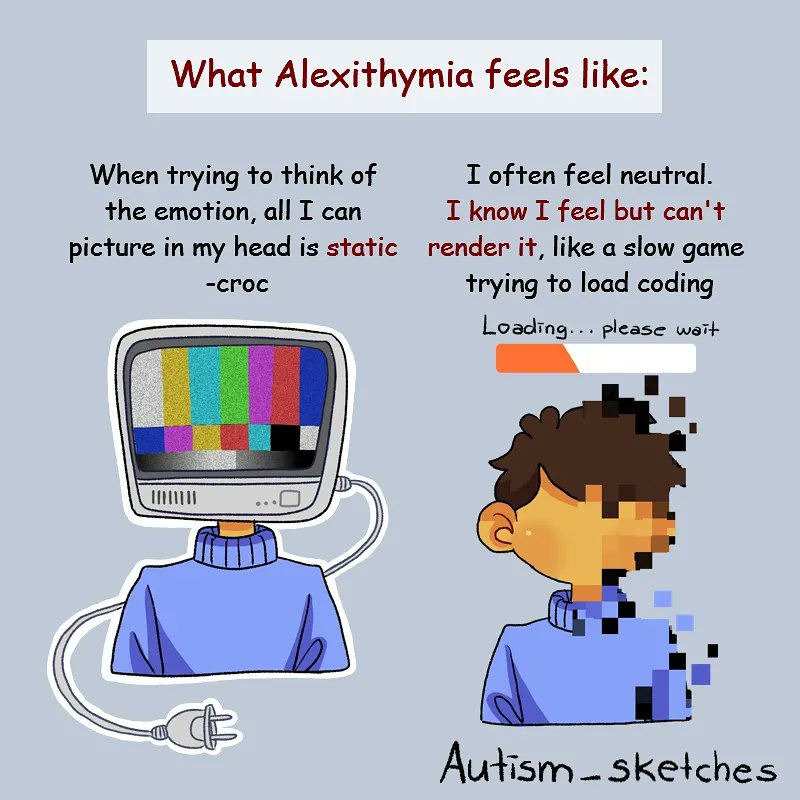What is alexithymia?
Alexithymia is a Greek word that literally translates as “no words for feelings”, and means difficulty with understanding and/or describing your feelings and emotions. This can sometimes make it harder to understand other people’s feelings too. Autistic people are more likely to experience alexithymia.
Signs of alexithymia
If you don’t know what to say when people ask “How are you?”, that can be a sign of alexithymia. Some autistic people can notice and understand their own emotions well, but just can’t find the right words to explain them to someone else. Feelings are complicated and we don’t necessarily experience just one at a time. A word like ‘sad’ or ‘happy’ might not feel enough to describe your emotions, or just not fit your experience. If this is you, it might be that taking a bit more time to think will allow you to compare your feelings to something else, or describe in a more abstract way like ‘I feel like I have surges of electricity rushing through me’ or ‘I’m all fuzzy and floaty’.
Another sign can be not realising you are upset about something until you are really upset, not knowing why you have got upset, or if other people don’t realise when you are unhappy or in pain. For some people, feelings can be so big that they are too overwhelming, while for others, feelings might be so small that they are hard to notice.
Alexithymia can also mean showing your feelings in different ways than people might expect – for example your face might get less expressive the more emotional you are, or you might get really quiet and then suddenly start shouting or burst into tears.

You can see more images about alexithymia from Autism Sketches here.
Alexithymia can be challenging, because if you’re not sure how you are feeling or why you feel a certain way, you can’t do anything about it. Both positive and negative emotions can be important for making decisions, as it can be harder to make choices if you don’t know how you feel about them.
What causes alexithymia?
Alexithymia in autistic people is partly due to sensory differences, especially a sense called interoception. This is the sense of what is going on inside your body. It includes things like knowing when you are hungry, thirsty or need to go to the toilet, as well as emotions. All of these sensations can be harder to spot if you have a lower sensitivity to your internal senses.
In addition, as autistic people, our emotional reactions can be different to people around us. So we might be bothered by things that other people enjoy, or other people might stop us doing things that make us feel happy. For example, other people might tell us something is ‘fun’ when actually we are feeling very anxious. Because we learn about emotions by others noticing, identifying and responding to our emotions, this can end up making us confused about our feelings.
What can help?
Souce: https://lindsaybraman.com/alexithymia-origins-and-treatment/
Alexithymia can get better with practice. Sometimes just having more time to process emotions can help. Everyone deals with emotions in different ways so experiment and find what works for you. Some ideas are: talking to someone, writing, creating art, exercising or listening to music.
Another tip is to look at a feelings wheel. These can help you to find the right emotion words. Reading fiction may also be helpful, as authors will often describe the character’s feelings from the inside. People around you can also support you with noticing, naming and dealing with your emotions.
Alexithymia makes it difficult to communicate how you feel, but with practice and support from others, it can get easier over time.



